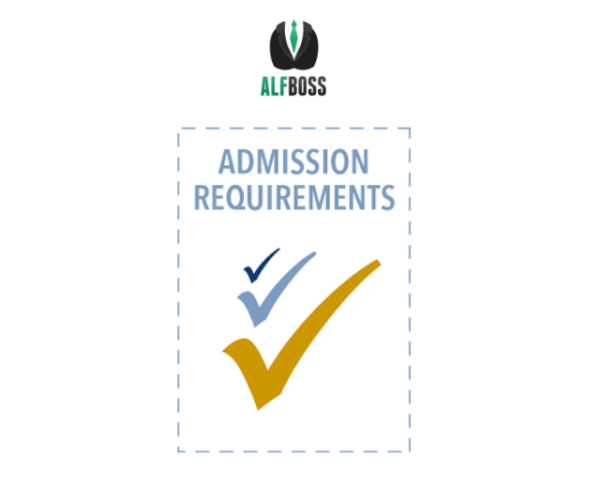
The pre-residency interview and completing the resident assessment tool are perhaps two of the most
important elements of success for an ALF and the prospective resident. This is a time where everything
is laid out on the table and a chance for both sides to see if it will be a good fit to move forward.
Thankfully, Maryland OHCQ provides a thorough guideline as to what is required during this time in the
following regulation:
.21 Preadmission Requirements.
A. Before Move-In.
(1) Before admission the assisted living manager or designee shall determine whether:
(a) The resident may be admitted under the assisted living program’s licensure category; and
(b) The resident’s needs can be met by the program.
(2) Within 30 days before admission, the assisted living manager or designee shall determine admission
eligibilities described in §A(1) of this regulation based on completion of a resident assessment using the Resident
Assessment Tool as described in §B of this regulation. The Department may modify the level of care determination
made by the assisted living program at any time. The Resident Assessment Tool:
(a) Determines the resident’s required level of care;
(b) Forms the basis for the development of the resident’s service plan; and
(c) Determines whether the resident needs awake overnight monitoring.
B. Resident Assessment Tool.
(1) Within 30 days before admission, the assisted living program shall collect, on the Resident Assessment Tool
written information about a potential resident’s physical condition and medical status.
(2) Information on the Resident Assessment Tool shall be based on an examination conducted by a primary
physician, certified nurse practitioner, certified registered nurse midwife, registered nurse, or physician assistant
who shall certify that the information on the Assessment reflects the resident’s current health status.
(3) If the potential resident is admitted on an emergency basis by a local department of social services, the
required assessment using the Resident Assessment Tool shall be completed as soon as possible but no later than 14
days of the emergency admission.
(4) Information on the assessment shall include at a minimum:
(a) Recent medical history, including any acute medical conditions or hospitalizations;(b) Significant medical c
conditions affecting functioning, including the individual’s ability for self-care,
cognition, physical condition, and behavioral and psychosocial status;
(c) Other active and significant chronic or acute medical diagnoses;
(d) Known allergies to foods and medications;
(e) Medical confirmation that the individual is free from communicable tuberculosis, and other active
reportable airborne communicable diseases;
(f) Current and other needed medications;
(g) Current and other needed treatments and services for medical conditions and related problems;
(h) Current nutritional status, including height, weight, risk factors, and deficits;
(i) Diets ordered by a physician;
(j) Medically necessary limitations or precautions; and
(k) Monitoring or tests that need to be performed or followed up after admission.
C. Functional Assessment. Within 30 days before admission, the assisted living manager, or designee, shall
collect on the Resident Assessment Tool the following information regarding the current condition of each resident:
(1) Level of functioning in activities of daily living;
(2) Level of support and intervention needed, including any special equipment and supplies required to
compensate for the individual’s deficits in activities of daily living;(3) Current physical or psychological symptoms requiring monitoring, support, or other intervention by the
assisted living program;
(4) Capacity for making personal and healthcare-related decisions;
(5) Presence of disruptive behaviors, or behaviors that present a risk to the health and safety of the resident or
others; and
(6) Social factors, including:
(a) Significant problems with family circumstances and personal relationships;
(b) Spiritual status and needs; and
(c) Ability to participate in structured and group activities, and the resident’s current involvement in these
activities.
D. Resident Requirements for Awake Overnight Staff.
(1) Before admission, the assisted living manager shall ensure that the resident is assessed using the Resident
Assessment Tool.(2) When the resident scores in any of the areas identified as “Triggers for Awake Overnight Staff” in the
Resident Assessment Tool, the assisted living program shall provide awake overnight staff or document why awake
overnight staff is not necessary in accordance with Regulation .14C of this chapter.
E. Short-Term Residential Care Requirements.
(1) For persons admitted for short-term residential care, only the following are required:
(a) Current physical condition and medical status as specified in §B(4) of this regulation, and functional
assessment as specified in §C of this regulation; and
(b) A resident agreement, in accordance with Regulations .24 and .25 of this chapter.
(2) Other than the information required in §D(1) of this regulation, additional information is not required for
subsequent short-term admissions if the resident or the resident’s representative certifies that there has been no
a significant change in the resident’s service needs.
F. A resident admitted as an emergency placement by a local department of social services is exempt from all
physical examination and assessment requirements of this regulation if the resident is in temporary emergency
shelter and services status, not to exceed 14 days, with notification to the Department of the placement within 48
hours